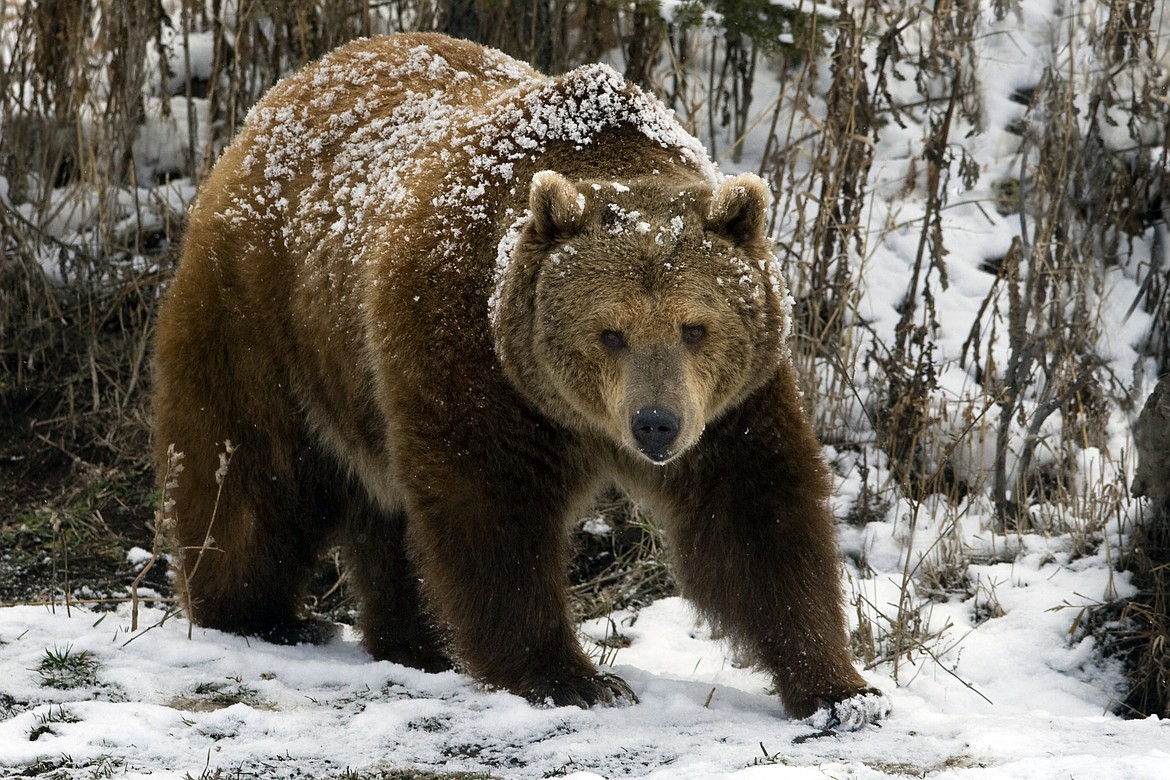Avian Influenza a concern as bears enter hyperphagia
| September 13, 2023 12:30 PM
As we enter into hyperphagia, a season of increased caloric consumption for bears, the likelihood for human-bear conflict tends to increase.
It is during this time before the denning season that we put our best efforts forward to promote healthy wildlife coexistence among our shared landscape.
Chickens can be a major anthropogenic (human-caused) attractant to bears. When consuming foods with the highest caloric value is of utmost importance, it is no surprise that an easy meal of a flock of chickens may be highly appealing to a bear.
In Northwest Montana, chickens overtook trash as the leading source of bear conflicts last year. Beyond the financial and emotional hardship of losing a flock, there is a high risk of avian flu transmission from birds to bears, which can result in fatalities.
A recent strain of avian flu (H5N1) has emerged in 2022 with mutations that allow for easiertransmission to domestic poultry.
Since 2022, 325 commercial flocks and 514 backyard flocks have been infected spanning across 47 states (APHIS, USDA).
The most recent detection of avian flu in chickens in Montana occurred mid-April of this year. Be sure to monitor your flock for unusual behavior and isolate any potentially infected chickens from the group.
Symptoms of avian flu in poultry can include death, lethargy, loss of appetite and coordination, diarrhea, nasal discharge, sneezing, purple discoloration, and reduced egg production and/or misshapen, soft eggs.
The virus can remain viable in poultry feces and soil, and can still be transmissible after removal of infected individuals if new ones are taking residence, requiring proper disinfection protocols prior to acquiring a new flock. To ensure best practices contact your local county health department for adequate steps of disinfecting the area.
Last fall, Montana Fish, Wildlife, & Parks (FWP) officials were forced to euthanize three grizzly bears with avian influenza that had neurological issues such as disorientation and partial blindness.
In addition to bears, the Department of Agriculture has detected 109 other mammal species that have been infected with avian influenza since May of 2022. It is understood that mammals can become infected with avian flu after consuming viral birds.
To prevent bears from becoming habituated to chickens or the spread of avian influenza, consider installing electric fencing around your chicken coop.
Properly built and maintained electric fencing can deter black and grizzly bears as well as other carnivores from predating on a flock and reduce the potential spread for avian influenza from backyard flocks to wildlife.
Swan Valley Bear Resources, People and Carnivores, Defenders of Wildlife, U.S. Fish and Wildlife Service, Wildlife Services, and FWP can assist you with electric fence installation, provide information on upkeep, and help with cost-share programs to offset some of the costs. Help keep wildlife safe by preventing unwanted conflict
For electric fencing assistance within the Swan Valley in the communities of Condon, Swan Lake, Ferndale, or Bigfork please contact Swan Valley Connections at 406-754-3137.


